Great unknown. About the First World War
Official Russian propaganda and the media have begun to recall the date - the First World War ended 95 years ago. Although it turned out that the vast majority of our fellow citizens have no idea about this war. Although at one time it was called the Great War. Called and the Second Patriotic. Sometimes used the name Great Patriotic.
From Russia, the war was fair. Kaiser Germany prepared aggression in advance, aiming no less than world domination. Its geopolitical projects envisaged to deprive Russia of access to the seas, detach Finland, the Baltic States, Poland, Belarus, Ukraine. The ally of the Germans, the Ottoman Empire, rolled lips to the Crimea, the Caucasus, the Volga region, Central Asia.
Of course, ordinary Russian people did not know such subtleties, but, according to the general impression of contemporaries, they felt with their hearts that they were fighting for a just cause. Mobilization plans were ahead. The peasants and workers, without waiting for the summons, made the sign of the cross and went to the recruiting stations. Many people released from conscription, joined the volunteers. Subsequently, myths arose about the "remaining" of Russia, its unpreparedness for war, defeat. But this is nothing more than myths.
If the Russian army had 7030 guns (48 per division) and 263 airplane, and French 4800 guns (36 per division) and 156 airplanes, where is the “backwardness”? In terms of technical equipment, tsarist troops surpassed France and England, second only to Germany and Austria-Hungary, but they were purposefully preparing to unleash a war in 1914. But in the field of tactics and personnel training, the Russians could give a head start to the Germans. The German military at the beginning of the war stepped onto the battlefield, as in a parade, in dense ranks, and even columns, held an alignment, walked in step - and fell down in rows under Russian shrapnel and machine guns.
20 August 1914, a brilliant victory at Gumbinnen, our troops thwarted the German Schlieffen plan and saved France’s ally France from death. Serbia was also saved by defeating Austria-Hungary and taking Galicia from it. Enemy counterattacks near Warsaw, Lodz, in the Carpathians, ended in heavy defeats of the Germans and Austrians. In December, 1914 - January 1915 near Sarykamysh almost completely destroyed the Turkish army, which was trying to break into the Russian Transcaucasus ... But these successes have alarmed not only opponents. They alarmed the Western allies, who were afraid that a victorious Russia would be able to dictate the terms of peace, would become a leader in international affairs after the war.
The first catastrophic blow to her was delivered not by enemies, but by “friends”. In the context of a general crisis with weapons and ammunition, all participants in the war feverishly reorganized their industrial base, and only the Russian military department solid gentlemen managed by hook and crook to instill another solution - to order everything necessary at British factories "Vikkers-Armstrong". The order for 5 million rounds, 1 million rifles, 1 billion rounds, 8 million grenades and others was accepted for shipment in March of 1915, but not completed. Moreover, the Russians did not even consider it necessary to warn about this in advance. The result was “shell hunger”, “rifle hunger” - and, as a result, “great retreat”. Our soldiers had to leave Poland, part of the Baltic states, Belarus, Ukraine.
Nevertheless, Russia has coped with a difficult situation. Coped without the help of allies! With some delay, she undertook to rebuild the industry and made an incredible dash! Despite the heavy war, the loss of the western provinces, the gross output of the Russian economy in 1916 was 121,5% compared to 1913! According to the calculations of academician Strumilin, the production potential of Russia from 1914 to the beginning of 1917 increased by 40%. There was 3 thousand new plants and factories. On the production of guns in 1916, our country overtook England and France, it increased by 10 times, the release of shells - by 20 times, rifles by 11 times. Position with weapons and ammunition fully normalized.
These successes immediately affected the course of the fighting. The retreat was replaced by successive victories. In the Caucasus, Erzerum and Trabzon were taken, the Cossacks watered the horses from the Tigris and the Euphrates, reached the approaches to Baghdad. In the Brusilov breakthrough, our soldiers finally broke the combat capability of the Austro-Hungarian troops, pretty much wasted the Germans.
Our warriors performed miracles of heroism. Khorunzhiy Semenov, returning from 10 to the Cossacks from intelligence, suddenly found out that the German cavalry brigade had flown into the backs of the 1 th Regiment of the Nerchinsky Regiment, seized carts, an artillery park, a banner, and leaves, taking the prisoners. 11 riders flew at the rear of the enemy, chopped and fled. Panic rolled, growing from tail to head of the column, and the enemy turned away, leaving behind prey. 400 prisoners were released, the banner and all trophies were broken ...
When the enemy broke through in Kurland, the German patrol captured the ordinary 151 of the Pyatigorsk Water Regiment. For refusing to answer questions, he was tortured, cut off his ears and tongue. The soldier remained loyal to the oath and was saved by a counter-attack of fellow soldiers ...
In July, 1916, the Germans launched a gas attack on the positions of the Georgian and Mingrelsky regiments. There were gas masks, but, having dressed them, the soldiers stopped hearing commands. When the Germans climbed to the assault, confusion and panic began. Then Colonel Ochmezuri took off his mask and began to give orders. All the officers followed his example. Panic subsided, repulsed the attack. Most of the soldiers survived. The officers poisoned and died ...
The plane “Ilya Muromets” by Abner Kostenchik received two direct hits from enemy shells during the bombing of the Daudevas station. The pilot, being contused and seriously wounded, made another circle, dropping the rest of the bombs, and then began to lose consciousness. His co-driver was able to land the machine, it counted 70 holes ... pilot Aleksandr Kazakov knocked 32 enemy aircraft, Peter Marinovic - 22, Ivan Smirnov and Victor Fedorov - by 20 ... Alexander Prokofiev Yury Yury Gilsher anticipated the feat Maresiev - losing a leg, continued to fly and win wins with a prosthesis ...
In the Volyn village of Rozhyshche in July 1916, the Red Cross representative G.M. Khitrovo. Not far from the infirmary, which he managed, pyroxylin drafts were piled up; they exploded during the German air raid. The barracks caught fire with the wounded, and Khitrovo led the evacuation, pulled people out until the roof collapsed ...
In the winter of 1916, the Caucasian army was stormed by the powerful Erzerum fortress, which was considered impregnable. February 1, when there was a success, the head of the 39-th Infantry Division introduced a reserve into battle, the 154-th Derbent Regiment. But under the deadly multi-layered fire the regiment suffered heavy losses and lay down. Having learned that the majority of the officers were knocked out, the priest Father Pavel (Smirnov) raised the cross and led the Derbentis to attack, as with a banner. Inspired soldiers rushed after him and broke into the Turkish fortifications. Father Pavel himself was seriously wounded, his leg was amputated.
In the same way, while leading the attack with a cross, on the South-Western Front, a priest of the 1916 Chernoyarsk Infantry Regiment, Father Alexander (Tarnoutsky) and several other regimental clergymen died in 318. General Brusilov recalled: “In those terrible counterattacks among the soldier's tunic, black figures flashed — the regimental priests, bending their cassocks, in rough boots, went with the warriors, encouraging the timid with simple Gospel words and behavior ... They forever stayed there, on the fields of Galicia, without parting from the flock ".
Maria Bochkareva became famous on the Western Front. The daughter of a peasant from Tomsk, she, with the beginning of the war, filed a petition for admission to the service. The king personally authorized such an exception. She fought as a private in the 28 Polotsk Regiment, was wounded four times and earned a full St. George's bow from 4 crosses and 4 medals for her valor. It was produced in the ensigns ...
You can recall the stavropolchanka Rimma Ivanov. She just graduated from high school, became a teacher. But when the war broke out, she went through the nursing courses and went to the front. I did not want to stay in the hospital, went to the front. She served in the 83 Samursky regiment. Parents were worried, persuaded her to return. She wrote to them: “You have to rejoice, if you love me, that I managed to get a job and work where I wanted ... Let me be a true sister of mercy. Let me do what is good and what to do. Think as you like, but I give you my honest word that I would give a lot in order to alleviate the suffering of those who shed blood. But you do not worry: our dressing station is not subjected to fire ... ”. “Life is generally short, and you have to live it as fully and better as possible. Help, Lord! Pray for Russia and humanity ... ”“ Danger is far away from me, it’s not there ... ”
As for danger, she hid the truth. She carried the wounded under fire, was in the thick of it. And during the withdrawal of the summer 1915 g. Took command of a group of soldiers and led the battle. She was awarded soldier George IV degree, two St. George medals. Then he transferred to the 15-th Orenburg regiment, where her brother served as a doctor. The soldiers of the soul did not like it, considered it their lively talisman and called it “holy Rimma”. And again she reassured her parents: “My good, lovely mother and folder! It is good for me here. People here are very good. Everyone treats me affably ... God bless you. And for the sake of our happiness, do not be disheartened ... We feel (with the brother) good! It's calm now. Do not worry, my family. Kiss. Rimma. 8.IX.15 ”.
And the next day, on September 9, the Orenburg regiment launched an attack near Dobroslavki village (in the Brest region, north of Pinsk). In the 10 th company, both officers were killed, the soldiers mingled. The sister of mercy, dressing up the wounded, rose and shouted: “Go! Follow me! ”She gathered around her those who could still hold a weapon and led to the attack. The soldiers, inspired, defeated the enemy. However, Rimma was mortally wounded. According to eyewitnesses, she whispered: “God, save Russia ...” And she crossed over the sobbing soldiers surrounding her. She was 21 year. By the decree of Nicholas II, the heroine was posthumously awarded the officer's Order of St. George, IV degree. She was the only woman awarded such an award.
Russia is not overstrained and not bled to death. Accounting for casualties at that time was conducted very scrupulously, according to the latest pre-revolutionary summary, “Special Records Management Report” No. 4 (292) from 13 (26) of February 1917, the total number of dead and wounded from wounds on all fronts was 598.764 officers and lower ranks For comparison - in the German army during the same period 1,05 million died in the French - 850 thousands of soldiers and officers. The number of prisoners captured by the Russians and the Russian prisoners of the enemy was about the same, as well as those who left after the injuries. (Another comparison can be made - the Civil War, which allegedly saved Russia from the “imperialist slaughter”, cost our people 15 - 17 million lives, mostly civilians).
1917 was supposed to be victorious. Opponents were already breathing their last, hunger began, their human resources were exhausted. Russian troops were preparing for the last decisive offensive. The best armament went to the front in a wide stream: machine guns, guns, armored cars. It was planned to introduce a new form of clothing. It was more convenient, and besides, the sovereign wished the form to be executed in the Russian national spirit, reminding the soldiers of the glorious past. It was made according to the sketches of the artist V.M. Vasnetsov. For soldiers, instead of hats, pointy woolen hats, heroes, beautiful overcoats with “conversations” were envisaged, as in archery kaftans. For officers, light and practical leathers were sewn ...
But efforts to destroy Russia also increased. Subversive work unfolded in two directions. On the one hand, it was widely led by opponents of Russia, financing and activating any anti-state and revolutionary movements. However, no less effort was made by the allies. They were once again frightened by the strengthening of our country, frightened that she would claim the share of the fruits of victory due to her, and would take the leading place in the post-war world. The governments and special services of the United States, Britain and France actively participated in the preparation of the revolution. However, it can be noted that the financing of all the destructive work — from both Germany and the Allies — was carried out from the same transnational banking community. Here and there, the same banking families were operating: Warburgs, Rothschilds, Morgans, Milner, Schiff.
The war facilitated this activity. The usual stratification was going on - the patriots were striving to the front, and the self-seekers settled in the rear. The cadre army suffered serious losses, and storekeepers called up “from the plow”, already in the rear barracks were handled by agitators. Soft laws contributed to the buildup. The Russian Empire was the only belligerent country that retained a completely peaceful rear and did not restrict “democratic freedoms”. The Duma had the opportunity to throw out dirt from the stands, the press - to print everything that customers pay, workers - to strike as much as they please. In the slightest degree, tough measures to restore order were paralyzed by the Duma, and the Duma liberals were kept under open patronage by the Allies. The king considered himself not entitled to quarrel with them in a war. I was sure that despite the differences in political views, the Russian people must rally to achieve victory.
In the summer of 1916, the adviser and the “gray cardinal” of American President Wilson Mandel House wrote up an action scenario — he reported to the president that the United States would enter the war only after the Russian tsar was overthrown. Then the war itself will look like the struggle of "world democracy" against "world absolutism." But the date for the entry of the United States into the war was stipulated in advance, spring 1917 g. This plan was fulfilled. At the very moment when the victory was very close, Russia stabbed a knife in the back. Instead of triumph, our country fell into chaos and chaos, into a bloody mess ...
In its consequences, the revolution was equivalent to the same as if the Soviet rear in Great Patriotic War collapsed somewhere after the Battle of Kursk. As a result, the world war, which was bound to end unequivocally in 1917, was delayed for another year. And it ended without Russia. However, this is exactly what suited the American shadow circles. Without the Russians, the French and the British could only rely on the United States. By entering the “new” war, America was able to dictate its terms. And Russia, knocked out of the game, could be declared a “traitor” and put into the section along with the vanquished. Political intrigue turned into new seas of blood. After all, the Germans were able to transfer all their forces to the west, resumed a fierce onslaught.
By the way, the Russians still participated in these battles. During the reign of the king and the provisional government, an expeditionary force of 50 thousand soldiers was sent to support the French. He suffered heavy losses in battles, and after the revolution, many soldiers refused to fight, some French were shot, others were sent to penal servitude. The hull was disbanded. The soldiers and officers were brought into the Russian Legion, included in the Moroccan division.
She distinguished extraordinary prowess. In May, the 1918 of the Germans broke through the front and rushed to Paris - the Moroccan division blocked the highway at Château-Thierry and withstood three German divisions for three days. But the enemy broke through in another sector, and the remnants of the Moroccan division were transferred to Kurtasson - here she withstood the blow of two more enemy divisions. In September, 1918, after being reformed, Moroccans and Russians were put on the point of impact when the Siegfried Line, the most powerful German fortification, was broken. The fight was terrible, two weeks continuously attacked, reflected, converged in the melee. And overpowered! When they came to their senses after the battles, it turned out that she had crushed 6 of the enemy divisions! For the breakthrough of the “Siegfried Line”, the Moroccan division was awarded the “Cross of the Commander of the Legion of Honor”, and the Russian Legion received the banner “The Military Cross with a palm tree on the ribbon”.
But the outcome of the war was determined after all not on the battlefields. Western governments and special services used the same weapons against Germany and its allies as they did against our country — revolutionary disintegration. To carry out such operations was not so difficult. After all, now they were conducted through Russia. Destructive ideas infected prisoners returned to the Germans and Austrians, infected their garrisons in the occupied territory. Emissaries of the Bolsheviks were sent to Berlin, they sent considerable funds and valuables. The Americans and the British did not sit on their hands, fed and fed the liberals, the Social Democrats.
After the Allied forces broke through the Siegfried Line and the front in the Balkans, discontent burst into the camp of their opponents and splashed into open revolts. The revolution began in Bulgaria, September 29 she capitulated. In October, the revolution swept the Ottoman Empire. On November 3, Austria-Hungary broke out of the war and immediately fell apart, engulfed in rebellions. And after the fall of the last ally overlapped and in Germany. Kaiser Wilhelm abruptly abdicated the throne, immediately got into the car and fled to Holland. The Social Democrats came to power. They naively believed Wilson’s campaigning that the war was being waged only against the Kaiser, and the victors would treat the democratic government gently. 11 November 1918 in Compiegne the German delegation signed an armistice. Representatives from France, England, USA, Italy, Serbia, Greece were present ... They did not consider the Russians to be invited. French President Clemenceau eloquently explained: "Russia is no more."
But the Russian legion still existed. He ended his combat career in the Bavarian town of Ludwigshafen. He brought his tricolor banner and the song “Soar, falcons, eagles ...” from Germany. They also drunk horses from the Rhine - but these were not Russian war horses, but French nagging horses. 3 January 1919 g. Russian Legion disbanded, soldiers and officers demobilized. They remained near 500 - from the 50-thousandth expeditionary force. The rest were killed in battles or scattered in a foreign land. But these 500 heroes are permanently stuck in France. The authorities blackmailed them, trying to recruit them into the Foreign Legion. Refused to let home, there was no money for travel. Rescued the soldiers of the Soviet government. It arrested the French mission for espionage and agreed to exchange it for Russian soldiers stationed in France.
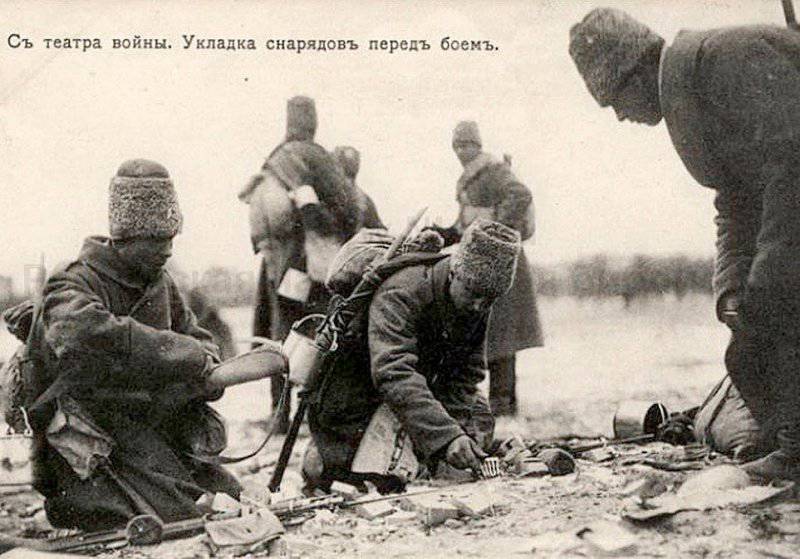
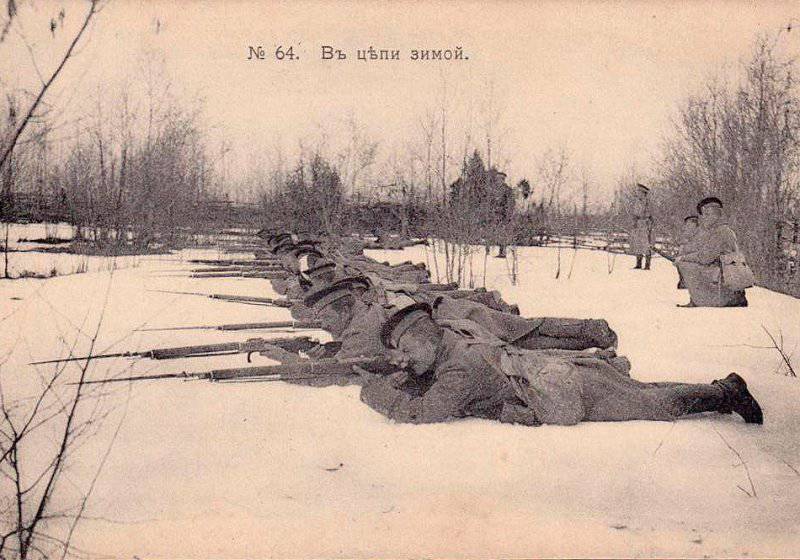
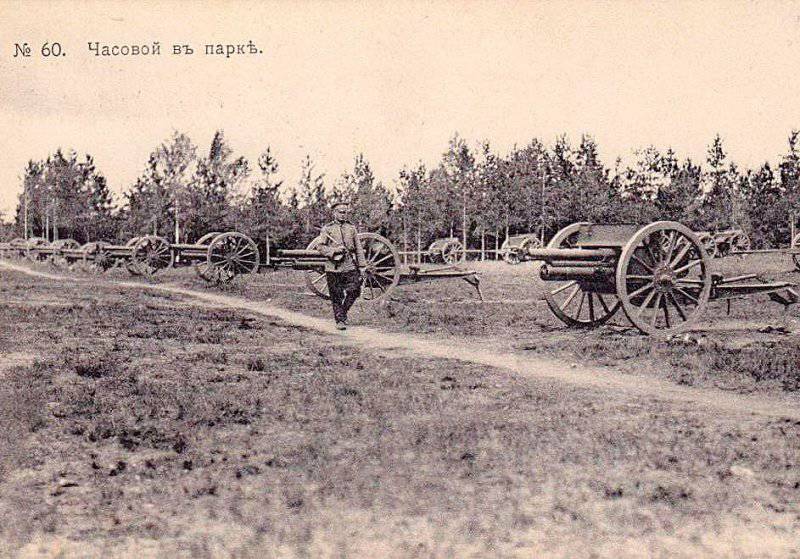
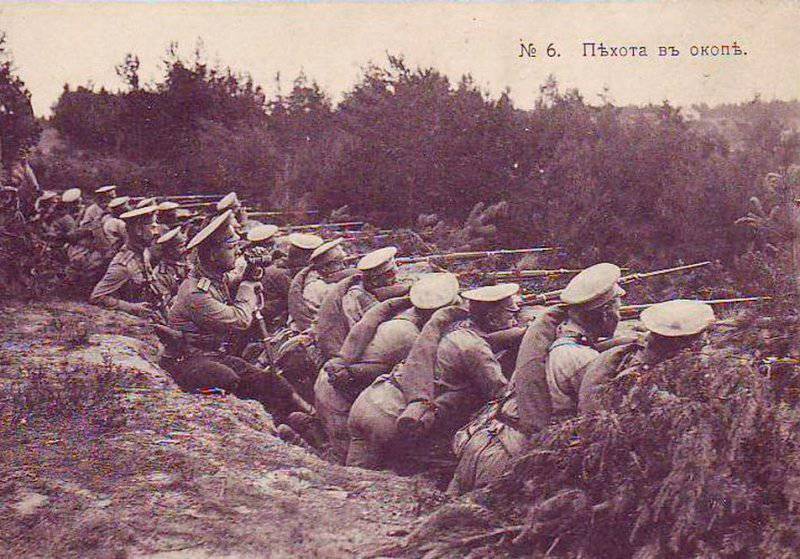
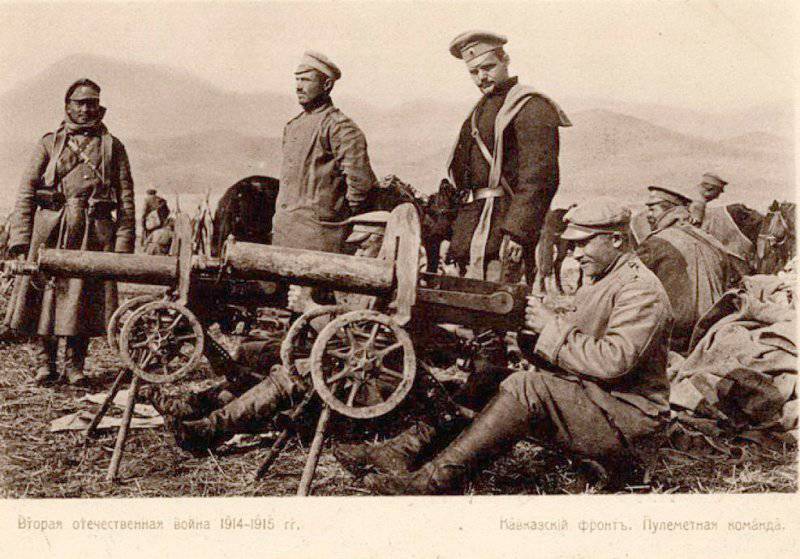
Information